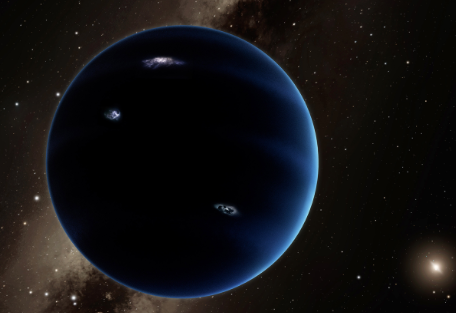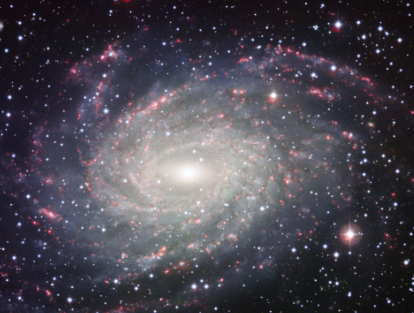
Tag: Astronomy
Solar Data Analytics Approaches Warp Speed
Data scientists at NASA are employing GPU-powered workstations and local storage to greatly accelerate analysis of images captured by the Solar Dynamic Observatory. Launched in 2010 to probe our yellow dwarf star and Read more…
Machine Learning for Science Proving Problematic
Scientists are raising red flags about the accuracy and reproducibility of conclusions drawn by machine learning frameworks. Among the remedies are developing new ML systems that can question their own predictions, show Read more…
Data, Calculations Point to a New Planet
The predicted existence of a new member of our solar system, "Planet Nine," as astronomers labeled it, is based on theoretical calculations that agree with observational and other data. But the researchers who published Read more…
New Databases Help Astronomers Probe the Universe
The observable universe became a bit more manageable this week when international astronomers moved to get their arms around their massive datasets through a partnership with the developers of the integrated Rule-Oriente Read more…
NASA Confirms 715 New Exoplanets from Kepler Data Haul
Astronomy is one of the more data-intensive sciences, as we have explored before. A new study from NASA highlights the importance of techniques that can keep pace with all that data. Read more…
ASTRON, IBM to Help Researchers Listen to SKA
The Square Kilometre Array (SKA) will seek to exponentially surpass current telescopes and thus delve into the formation of stars near the beginning of the known universe. To facilitate SKA’s immense computational needs, ASTRON, the Netherlands Institute for Radio Astronomy, and IBM have teamed up to form DOME in researching the computing side of the highly ambitious astronomical survey project. Read more…
The Week in Big Data Research
This week's big data research and development stories cover a wide area, as researchers from Europe, China, and the United States figure out how to use big data to solve biomedical problems on this planet along with finding and storing data on other planets. Visualization and archiving big data in large databases also got its share of attention this week. Read more…
Can Extragalactic Data Be Standardized? Part 2
Sebastien Foucaud and Nicolas Kamennoff co-authored the paper alongside Yasuhiro Hashimoto and Meng-Feng Tsai, who are based in Taiwan, laying out the TWEA-DC. They argue that since parallel processing is a relatively recent phenomenon, many programmers have not been versed in how to properly optimize their software. Read more…
Can Extragalactic Data Be Standardized?
According to recent research written from French computer scientists Nicolas Kamennoff, Sebastien Foucaud, and Sebastien Reybier, the gradual decline of Moore’s Law and the resulting lack of computing power combined with the ever-expanding ability to see outside the Milky Way are creating a significant bottleneck in astronomical research. Read more…
Pushing Parallel Barriers Skyward
Some researchers believe that parallel processing will not be enough to meet the huge data requirements of future massive-scale astronomical surveys. Specifically, several researchers from the Korea Institute of Science and Technology Information including... Read more…
Astronomers Leverage “Unprecedented” Data Set
Researchers at Caltech and the University of Arizona have tapped the largest data set for understanding the illumination and dimming of celestial objects. On its own this is exciting, but when coupled with research in other areas of astronomy the insight this lends is invaluable... Read more…


































